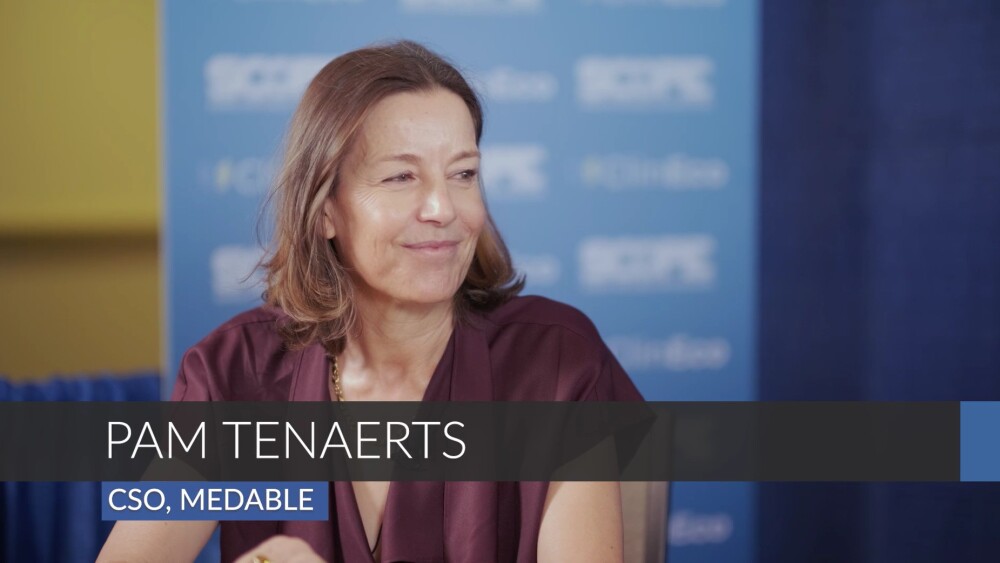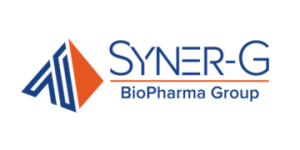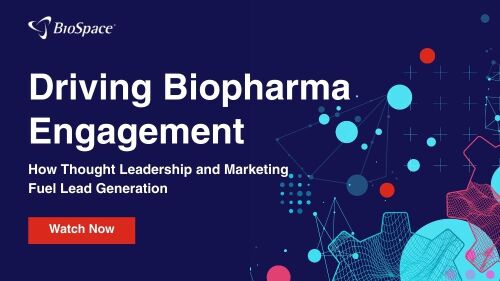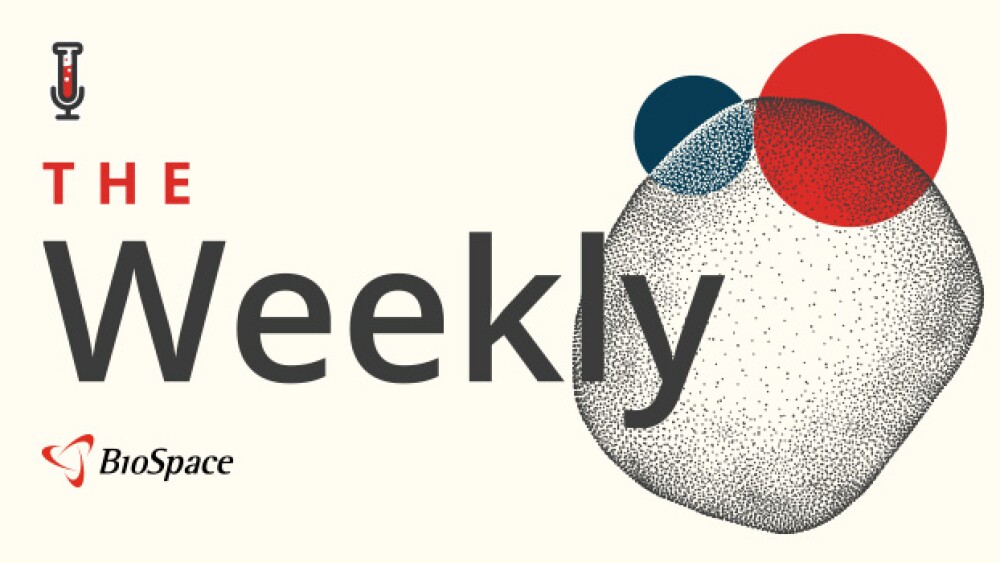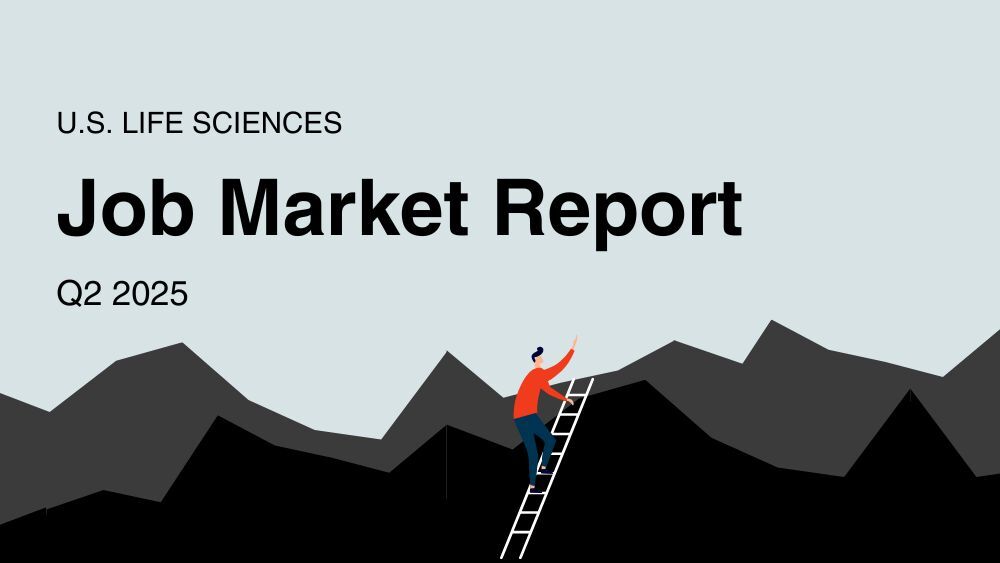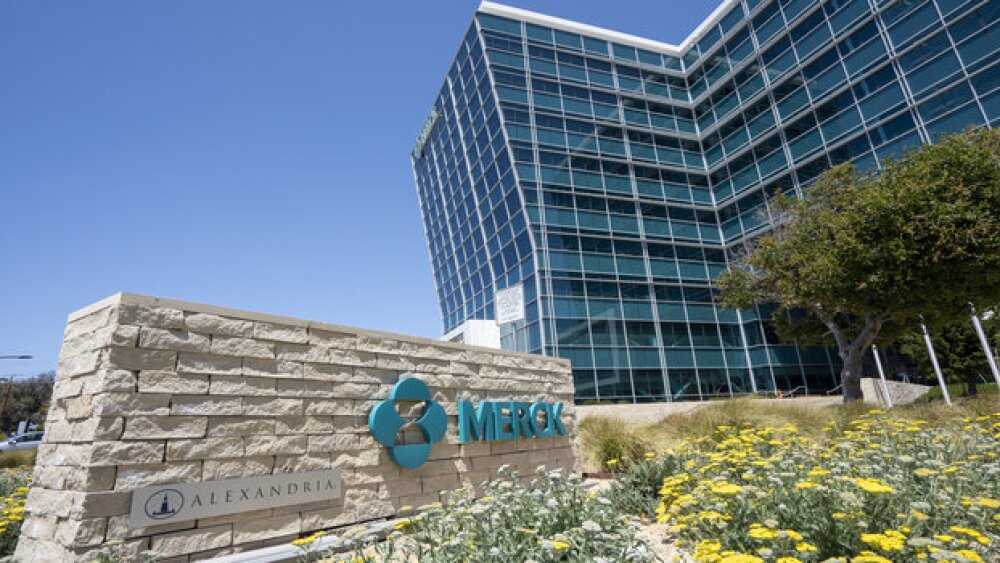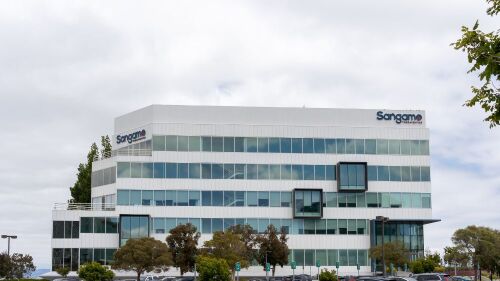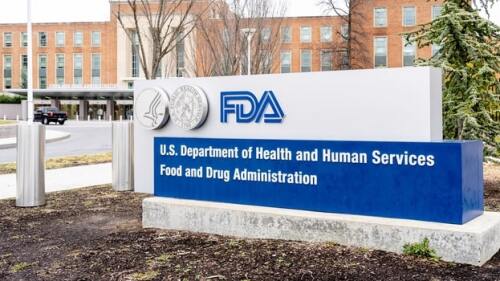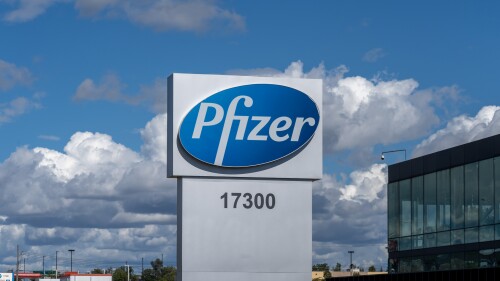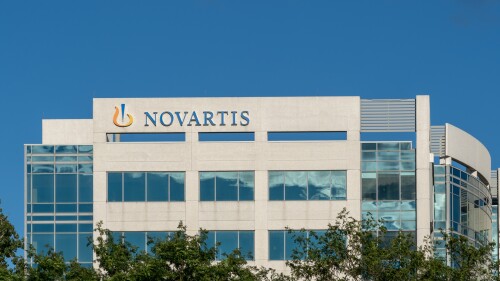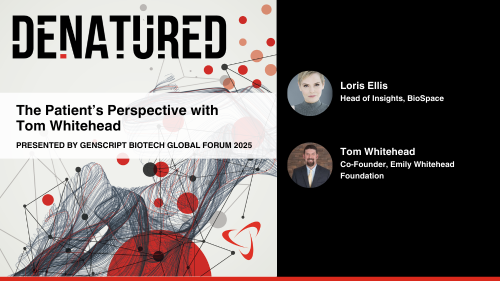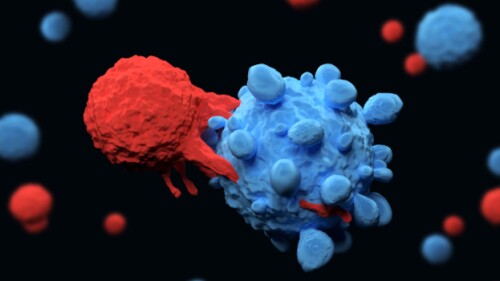Earlier this year, the Centers for Medicare and Medicaid Services scrapped a previous proposal, from the Biden administration, to include anti-obesity medications in Medicare Part D coverage.
A ripple effect of the NIH’s slashed 2026 budget will be felt throughout the biopharma ecosystem. Young companies must act now to weather the storm.
Delays in the decision dates for high-dose Eylea are linked to issues at a Catalent-owned facility. Once these are resolved, Regeneron expects “to receive favorable action” on these applications, CEO Leonard Schleifer told investors.
A U.K. Court of Appeals ruling confirms the validity of a patent covering modifications of mRNA used in Moderna’s vaccines.
It’s not often that a CEO outright dismisses M&A prospects, but Moderna CEO Stéphane Bancel says the mRNA biotech has enough programs on its hands.
The FDA has denied that it plans to combine the Center for Drug Evaluation and Research and Center for Biologics Evaluation and Research into one entity.
FEATURED STORIES
As communication gaps in the US healthcare market widen, the emphasis on the need for credible information and patient empowerment is paramount.
As high prices and supply issues drive consumers to alternative markets for GLP-1s, physicians aren’t too interested in using these therapies to treat conditions like heart disease risk that have existing cheap standards of care.
SpringWorks Therapeutics sprung out of Pfizer’s storeroom, when a rare disease advocacy group pushed to keep a program for neurofibromatosis alive. This method could work for “every rare disease under the sun,” advocates say.
SpringWorks Therapeutics is the perfect case study for rescuing a discontinued assets. It’s time to repeat the process for every rare disease, experts say.
The industry remains unwavering in the commitment to increased clinical trial accessibility and representation.
Price-negotiation provisions that are out of step with reality are discouraging funders and Big Pharma partners from investing in potentially transformative therapies. Fixing some of the unintended consequences of the IRA will clear the way for innovative medicines to reach patients in need.
LATEST PODCASTS
This is the third episode of Denatured’s discussion on diversity, equity and inclusion. Here, our guests discuss imperatives around access and accountability.
Pfizer selects its candidate for the oral GLP-1 race as Eli Lilly strives to overtake Novo Nordisk in the injectable weight-loss drug space. Meanwhile, pressure builds to reduce drug prices in the U.S.
Eli Lilly becomes the latest to make a major investment in immunology and inflammation, while antibody-drug conjugate biopharma Myricx Bio nets a large Series A round and new research highlights the potential and possible risks of GLP-1s.
Job Trends
Merck, known as MSD outside of the United States and Canada, and Eyebiotech Limited, a privately held ophthalmology-focused biotechnology company, announced that the companies have entered into a definitive agreement under which Merck, through a subsidiary, will acquire EyeBio.
Subscribe to Genepool
Subscribe to BioSpace’s flagship publication including top headlines, special editions and life sciences’ most important breaking news
SPECIAL EDITIONS
In this deep dive, BioSpace explores the next big thing in obesity.
BioSpace did a deep dive into biopharma female executives who navigated difficult markets to lead their companies to high-value exits.
BioSpace data show biopharma professionals faced increased competition for fewer employment opportunities during the second quarter of 2025, with increased pressure from further layoffs.
DEALS
-
After dropping $4 billion on a deal with the Japanese company last year, Merck is getting back some of its investment as Daiichi Sankyo buys into a Phase I/II T-cell engager therapy acquired from Harpoon Therapeutics.
-
Sangamo Therapeutics announced Tuesday it secured an exclusive licensing agreement with Roche’s Genentech, which is paying $50 million in near-term upfront fees and milestone payments to develop novel genomic medicines for neurodegenerative diseases.
-
Biotech entrepreneur Arie Belldegrun and former Roche CEO Franz Humer are part of the credit firm’s push to provide companies with another source of funding, Symbiotic Capital announced Tuesday.
-
As part of a pipeline realignment, Bristol Myers Squibb is returning the rights to Agenus for its proprietary TIGIT bispecific antibody program and terminating their 2021 license, development and commercialization agreement.
-
With an upfront $800 million payment and $325 million in potential milestones, Otsuka Pharmaceutical is acquiring Jnana Therapeutics’ drug discovery platform and rare disease candidate, the companies announced Thursday.
WEIGHT LOSS
-
The EMA approved a kidney disease–related label expansion for the blockbuster GLP-1 drug after a study showed reduced risk of death by 20%.
-
The discontinuation of STRIDES is a rare stumble for the next-generation obesity field and comes just weeks after Amgen announced underwhelming mid-stage data for MariTide.
-
Eli Lilly is aggressively ramping up its manufacturing capacity for tirzepatide as compounding pharmacies continue to challenge an FDA decision to formally end the shortage of the obesity and diabetes drug.
-
In recent months Novo Nordisk has invested several billions of dollars to boost its manufacturing capacity—including its highly contested $16.5 billion merger with CDMO giant Catalent.
-
The Danish startup, whose lead candidate has parallels to Amgen’s MariTide, launches on the heels of Amgen’s Phase II data release for the drug last week.
POLICY
-
FDA Commissioner Marty Makary last week announced a directive that would limit industry participation in the agency’s advisory committees. But not only do company reps serve only as non-voting members, a 1997 law actually requires industry involvement.
-
Disruptive conditions are typical in non-Western markets. The U.S. industry, thrown into a period of significant change as the Trump administration overhauls HHS and considers implementing tariffs, could learn a thing or two by looking overseas.
-
In an interview with former Fox News journalist Megyn Kelly, FDA Commissioner Marty Makary introduced a new mechanism-driven pathway that could be leveraged by rare disease therapies while saying that autism could potentially be driven by certain environmental factors.
-
Losing the FDA’s senior negotiators would slow the renewal of the user fee programs “considerably,” according to policy and regulatory expert Steven Grossman.
-
Industry representatives will still be allowed at these meetings, but they will no longer have a spot on the advisory committee.
Requesting disability accommodations is vital for your success in the workplace. You can find out everything about how to ask for accommodations in our guide.
Before searching for a job in the life sciences industry, it is essential to understand the differences between working as a contractor and a full-time employee.
Mentioning these certifications in your resume will set you apart from other candidates, clearing your path to your desired role. Learn here how to add certification to resume.
Applying to your first pharma internship may feel overwhelming, but it doesn’t have to be. Discover how to find, prepare for and be successful in an internship in the pharma industry in our guide.
Learn how to successfully hire interns. Also, find some tips on how to manage and support both in-office and remote interns in our comprehensive guide.
Just because everyone around you seems to be switching to a work-from-home position does not mean it is the right decision for you. It’s important to weigh the options carefully before you decide.
HOTBEDS
REPORTS
In this Employment Outlook report, BioSpace explores current workforce sentiment, job activity trends and the prospective job and hiring outlook for 2025, particularly as it compares to the previous year.
BioSpace’s third report on diversity, equity, inclusion and belonging in life sciences examines dramatic shifts in attitude around diversity initiatives.
CANCER
-
Faced with the encroaching threats of patent expirations and generics, biopharma companies in 2024 invested 33% more in licensing deals, on average, than in 2023 with an eye toward enriching their pipelines with novel and potentially more effective therapies.
-
Topline data on a combo including Pfizer’s kinase inhibitor Braftovi point to improved progression-free survival and pave the way for its full approval for the treatment of certain colorectal cancers, according to the company.
-
Novartis was among the most prolific pharma dealmakers in 2024, a trend that it expects to continue with more bolt-on deals this year to set up for sustainable long-term growth.
-
In this episode, presented by the Genscript Biotech Global Forum 2025, BioSpace’s Head of Insights Lori Ellis talks to Tom Whitehead, co-founder of the Emily Whitehead Foundation, about how standard care, cell and gene therapies and their impact on patients.
-
The layoffs follow an announcement in early January that I-Mab will re-prioritize resources to focus on advancing a CLDN18.2 and 4-1BB bispecific antibody for gastric cancers.
NEUROSCIENCE
-
Even as Biogen and Eisai’s Leqembi and Eli Lilly’s Kisunla slowly roll out onto the market, experts question the efficacy of these anti-amyloid antibodies and the amyloid hypothesis overall.
-
Some 90% of investigational drugs fail—and success rates are even more dire in the neuro space. Here, BioSpace looks at five clinical trial flops that stole headlines over the past 12 months.
-
GSK, Gilead and Arcellx, Vertex and more present new data at the American Society of Hematology annual meeting just as sickle cell therapies Casgevy and Lyfgenia have a new outcomes-based payment model; Eli Lilly and Novo Nordisk pump new funds into manufacturing; and AbbVie makes a Cerevel comeback while uniQure clears a path toward accelerated approval in Huntington’s disease.
-
In a Type B meeting, the FDA signified that it will allow uniQure to use a natural history control, the composite Unified Huntington’s Disease Rating Scale, and neurofilament light chain levels to support the accelerated approval of its gene therapy AMT-130.
-
Relmada Therapeutics will halt two Phase III trials of a major depressive disorder drug after a futility assessment and explore strategic alternatives including a potential sale to maximize shareholder value.
CELL AND GENE THERAPY
-
Multiple players are exploring whether modalities designed to combat B cell malignancies can be repurposed against lupus, myasthenia gravis and other conditions traced to misdirected immune response.
-
While some of the initial excitement around immunotherapies has waned, companies—particularly smaller biotechs—are developing newer iterations that will take cancer care to the next level.
-
The biotech beat Wall Street’s third-quarter revenue forecast by 6%, driven by increased uptake of its achondroplasia drug Voxzogo. However, William Blair downgraded BioMarin’s shares to market perform due to a “lack of near-term catalysts” and uncertainty around Voxzogo’s potential revenue growth.
-
With Sarepta’s gene therapy Elevidys now available to a majority of Duchenne muscular dystrophy patients, experts express cautious optimism while emphasizing the need for further data.
-
With an upfront payment of $50 million from Roche, the partnership will leverage Dyno Therapeutics’ in vivo gene therapy delivery technology, which synthesizes virus capsids with better functionality and manufacturability.














